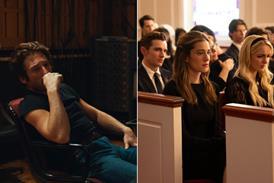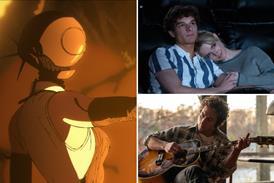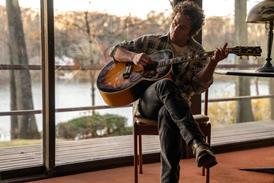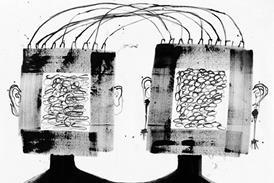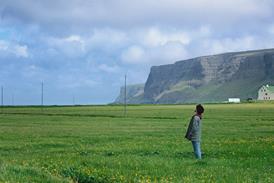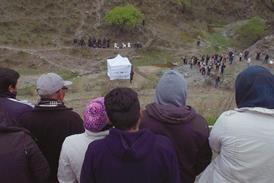A Tunisian teenager encounters violent extremism in this drama based on the 2015 killing of Mabrouk Soltani
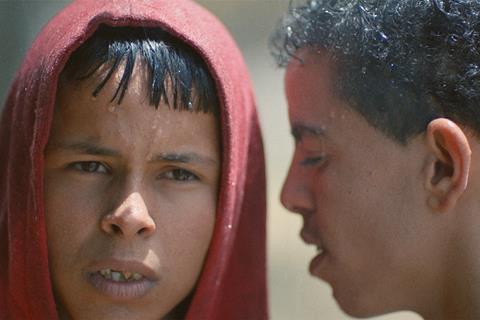
Dir: Lotfi Achour. Tunisia/France/Belgium/Poland/Saudi Arabia/Qatar. 2024. 101mins
As if life for 14-year-old goat herder Ashraf (Ali Helali) and his older teen cousin Nizar (Yassine Samouni) isn’t precarious enough in their rural Tunisian community, a trip up the Mghila Mountain brings the added risk of potential landmines and threats from the extremists who hideout there. Yet, for the teenagers, danger seems like a far off possibility as they horse about in mountain pools and tell stories on a sunny day. Until brutal reality arrives and they are suddenly set upon by jihadists, who behead the older boy and leave the head for Ashraf to carry home.
Doesn’t stint on the grim detail
This, sadly, is not an imagined event but is based on the killing of 17-year-old Mabrouk Soltani amid the 2015 Tunisian unrest – although Lotfi Achour’s film could do with a little more sociopolitical context for non-local viewers. Red Path has enjoyed a strong festival run since its premiere in Locarno, including an audience award win in Vancouver, and it now screens in Thessaloniki’s Meet The Neighbours competition. It will be distributed in the UK next year by Sovereign Films.
Achour, co-writing with Natacha de Pontcharra, presents the harrowing aftermath of the murder largely from Ashraf’s perspective. Red Path doesn’t stint on the grim detail and Achour, who alongside shorts and 2016 feature Burning Hope has written more than 20 plays, sometimes risks labouring the point in ways that would work better on a stage than a screen. The casting is strong, particularly amongst the youngsters, with Helali remarkably adept at letting Ashraf’s warring emotions ripple below the surfac, and Wided Dabebi also compelling as Nizar’s young girlfriend.
Keeping us in Ashraf’s headspace, cinematographer Wojciech Staron often lets the youngster’s face fill the frame, as we watch him trying to wrap his head around what has happened. At other times we are fully immersed in the boy’s memories of the hours before Nizar was killed, shot from a first-person point of view, or privy to fantasy sequences and dreams in which Ashraf tries to work through his feelings by talking to his dead friend. Although there is plenty of variation to the shooting style throughout, Staron’s work has a dreamy flow between the reality of life in the village and the psychological landscapes that Ashraf navigates, which fits his mental limbo state. Aymen Laabidi’s effective sound design also amplifies Ashraf’s observations, memories and trauma.
The teenager’s psychological journey becomes a physical one as his family find themselves ignored by the authorities. If they want to recover Nizar’s body they must do it themselves, and Ashraf is the only one who knows where he is. There’s nuance to the pressure the boy comes under, as Achour makes it clear that it stems from the family’s desperation rather than a desire to put the boy through the mill.
Beyond the murder itself, Achour paints a vivid picture of a community where, in any event, childhood is short, with Ashraf having to quit school because his father is away. It’s also a place where pressure to take a side between the jihadists and government puts everyone at additional risk. And, as this raw drama highlights, it is an environment in which the threat of violence is constant while the promise of hope is scarce.
Production companies: APA: Artistes Producteurs Associés, La Luna Productions, Versus Production, Shipsboy
International sales: MPM Premium, sales@mpmpremium.com
Producers: Anissa Daoud, Sébastien Hussenot, Lotfi Achour
Screenplay: Natacha de Pontcharra, Lotfi Achour
Cinematography: Wojciech Staron
Production design: Mohamed Mouhli
Editing: Ewin Ryckaert, Malek Chatta
Music: Venceslas Catz, Jawhar Basti
Main cast: Ali Helali, Yassine Samouni, Wided Dabebi, Jemii Lamari, Latifa Gafsi, Salha Nasraoui, Younes Naouar






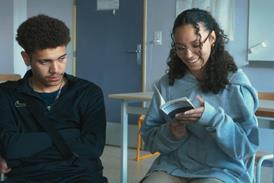


![[Clockwise from top left]: 'The Voice Of Hind Rajab', 'A House Of Dynamite', 'Jay Kelly', 'After The Hunt', 'The Smashing Machine'](https://d1nslcd7m2225b.cloudfront.net/Pictures/274x183/1/7/0/1459170_veniceawards_837515.jpg)


